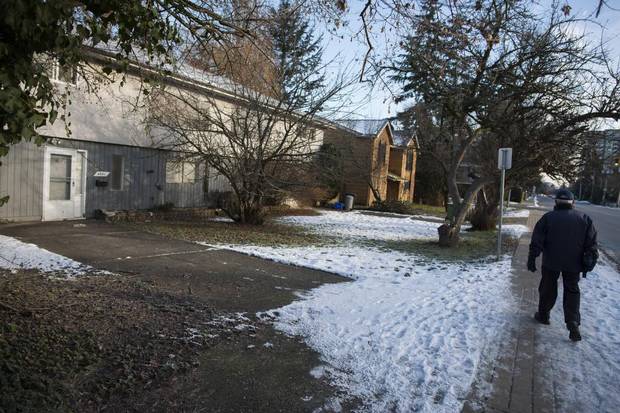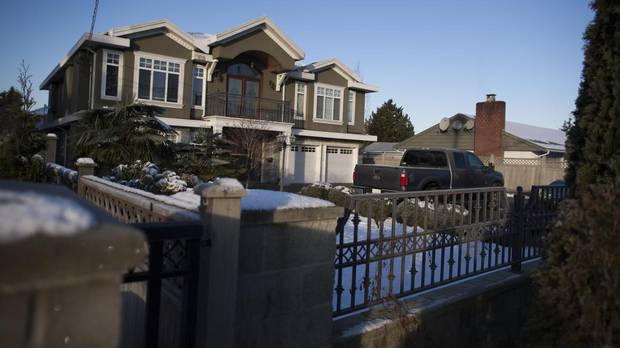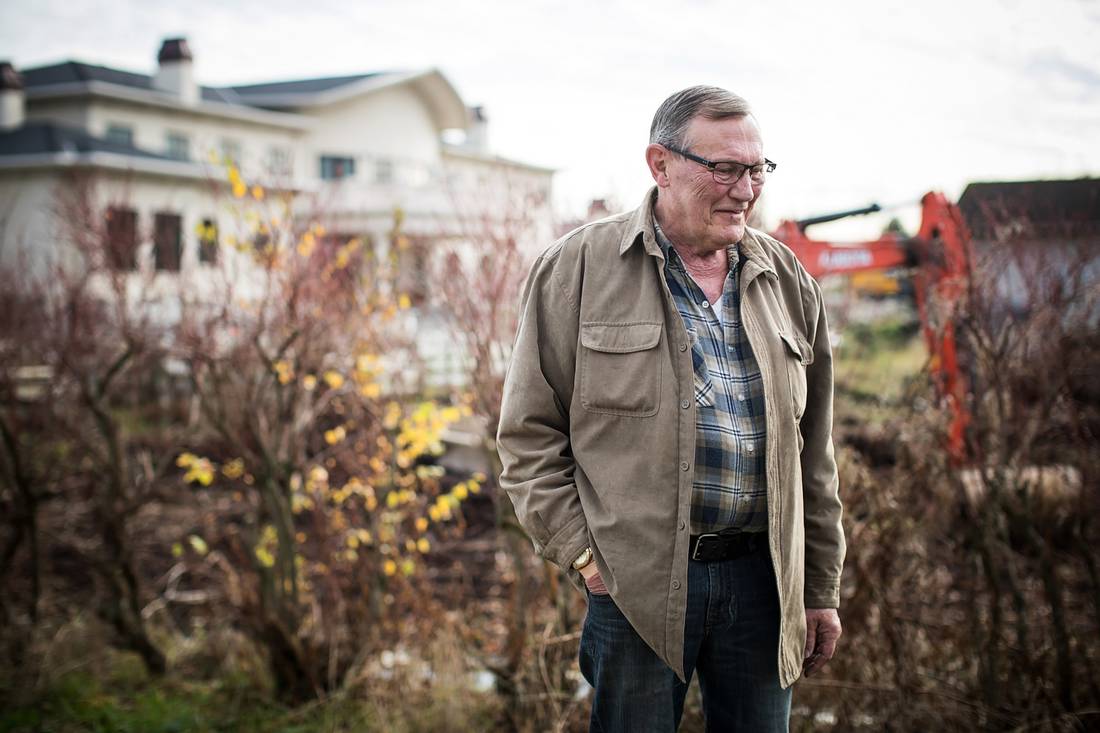Several hotels advertised on Chinese-language websites are illegally run out of Vancouver-area houses, each offering several rooms and services that include use of the house as an ongoing personal mailing address for clients to receive Canadian immigration documents and health-care cards.
Multiple suites for short-term paying guests are not allowed in single-family homes, particularly when the property is not the owner's primary residence. Longer-term rental units also technically are not permitted, unless they have been approved by the city and have a limited number of tenants.
Vancouver and Richmond have been criticized for not clamping down on illegal operations. Despite hundreds of complaints, not a single fine has been issued.
The ads examined by The Globe and Mail advertise up to 10 double-occupancy rooms in each home, available year-round, at prices ranging from $65 to $1,029 a night. The Globe also found temporary, makeshift suites have been rented out in older homes slated set for demolition by investor-owners who have plans to redevelop.
Two such properties, which were investigated in recent years for suspected illegal suites by the city of Richmond, are owned by businessman Miaofei Pan, a real estate developer who entertained Prime Minister Justin Trudeau in his Vancouver mansion last month at a private fundraising dinner for the Liberal Party.
Those homes, held by Mr. Pan's company since 2008, were cited for health and safety infractions in 2011 and 2015, including fire hazards, carbon monoxide leaks and having multiple suites with up to 13 people living there. Inspection records say the owner initially resisted making repairs because he wanted to demolish and redevelop the property.

A house located at 8591 Cook Rd., left, adjacent to 8611 Cook Road, right, in Richmond, B.C. The properties, which were investigated by the City of Richmond in recent years for illegal suites, are owned by businessman Miaofei Pan.
Rafal Gerszak/For The Globe and Mail
Mr. Pan did not respond to requests for comment. The two investment properties are now empty, with broken windows and mail piled up outside.
Almost every ad The Globe found – for rooms currently available in private homes – also promises additional perks for clients.
A translation of the list of services in a house on Blundell Road in Richmond includes: "Assist guests to get social insurance card, medical card, education funds, apply for schools, get driving license, open bank account etc.; introduce guests to excellent real estate agents, financial insurance people and professional tax accountants; help new immigrants receive/mail maple card."
("Maple card" is a nickname for the Canadian permanent residency card, which features a maple leaf.)
Related: B.C. city eyes crackdown on 'hotels' taking advantage of farmland tax loophole
Related: B.C. minister says province will act 'quickly' to close tax loopholes on farmland
Related: Richmond, B.C. looks to address megahomes built on farmland
A listing for a house on Grassmere Street in the suburb of Burnaby promises "addresses for receiving maple cards/medical cards and SIN cards for free; also can help guests mail important documents."
Another Richmond house, on Garden City Road, states: "The hotel has 10 different price rooms, suitable for new immigrants, tourism, business and students for long and short stays. Free assistance for getting labor cards, medical cards, education funds, admission applications, driver's license, bank accounts and other services. Free for new immigrants to send and receive maple leaf card."
One of Mr. Pan's business associates listed the Garden City Road hotel as his personal address on land-title registrations for two properties he bought in B.C. this year. The businessman has never owned the hotel property. Online address directories suggest he lives in China.
The Globe documented more than a dozen unlicensed businesses marketing similar services, most in Richmond, near the airport. Some ads indicate the entire house is divided into suites, available indefinitely, suggesting the owners do not live there at any time.

A house located at 8691 Garden City Rd. in Richmond, B.C.
Rafal Gerszak/For The Globe and Mail
That sets them apart from offerings on Airbnb, which requires its listings to be "non-commercial," and primarly in a host's residence. The Chinese-language websites are not full-service booking sites and do not offer refunds, as Airbnb does, for misleading ads or substandard rooms.
Some of the hotels currently in operation are on farmland, where owners can take advantage of huge tax breaks that were created to support agriculture. Provincial law prohibits any other type of business in these areas.
The Globe found one such operation on Granville Avenue in Richmond, advertising several rooms for $800 a night each. That property owner pays just $800 for a whole year's municipal taxes as a result of farmland subsidies.
"This house is 4,000 square feet," Chanel Hsu, the host of the Granville Avenue location, said in a phone interview. "When customers move in, all the bedding sets, cleaning supplies and air conditioning – everything is included. They can live here with only their luggage."
The city of Richmond investigated 105 complaints about illegal short-term rentals in the past year, a four-fold increase from 2015. It received 40 additional complaints about houses with longer-term rental suites.
Despite that, the municipality has levied no fines. In the cases of Mr. Pan and others, bylaw officers notified the owners that multiple suites must be vacated, but they were not penalized. In other cases, inspectors arrived – after a 24-hour advance warning – to find no evidence of illegal suites.
The City of Vancouver also said it has not handed out any fines, despite getting 141 calls this year alone from citizens complaining about short-term rentals in private homes.

The back of a house located at 8611 Cook Rd. in Richmond, B.C., which is owned by businessman Miaofei Pan and has been investigated by the City of Richmond.
Rafal Gerszak/For The Globe and Mail
Vancouver is reviewing whether to issue penalties, but for now, both municipalites said they almost always try to work with homeowners instead. They said they are taking a handful of serious offenders to court, hoping judges will impose stronger penalties than the maximum $500 fine cities can hand out for a bylaw infraction.
"Given the level of impact on the community and the monies involved, we don't think a $500 fine is sufficient, hence we've chosen to continue to pursue enforcement through the courts," said Ted Townsend, spokesperson for the city of Richmond. "We are currently pursuing two cases through the courts, but otherwise have not had any recent prosecutions."
Vancouver spokesperson Jag Sandhu said the city "has identified 10 properties with what appear to be illegal rentals, and has pursued escalated enforcement activity in the form of a court injunction for one owner. In many cases, owners change their behaviour upon notification from the city and formal enforcement activity is not required."
By contrast, a spokesperson said Coquitlam decided to "deal with this before the problem gets worse" by hiring a dedicated investigator and handing out fines directly. Since January, Stephanie James said, the city has penalized 54 owners for running multiple suites in their homes, with tickets ranging from $150 to $500.
"This is something we are serious about," Ms. James said. "We spent a lot of time developing this program."
Back in Richmond, a large mansion on farmland inspected twice in recent years for suspected illegal suites is still advertising five rooms at $1,029 per night each. A man who did not want to be identified, speaking on behalf of the property owner, said it was sold recently and has one guest staying there now.
"It had renters before, and now the house still has renters," the man said. "The [new] owner has thought about using the house to do B&B or family hotels … we want to rent the whole house for people who are friends to each other or [for] a tour…or for weddings or parties."

This large mansion, located on farmland at 7120 No 5 Rd. in Richmond, B.C., was inspected twice in recent years for illegal suites and is still advertising rooms for $1,029 per night.
Rafal Gerszak/For The Globe and Mail
No one answered the door at two other places currently advertising rooms. One of them – the house on farmland with rooms for $800 a night – had Christmas lights up, but it appeared empty and no one had cleared the snow. The owner of the other facility is in China, according to his mother, who told The Globe by phone that business is better in the summer.
Richmond's mayor said it's "very difficult" to catch operators in the act.
"It's a far more difficult task than it would appear to be on the surface. Steps are taken to mask the situation. They get rid of the guests and room numbers," Malcolm Brodie said. "You have to find the listings on websites and they could be in different languages, so it's not a straight line to get there."
"It looks like the establishment doesn't want to rock the boat," said Carol Day, an outspoken councillor who has clashed with the mayor before on this subject.
"It's too politically scary for them. And we are affecting people's lives here. If you have people coming and going on a nightly basis, you affect the lives of the people in the neighborhood. If those suites are not safe, you are risking people's lives."
Gary Liu, a community activist with Housing Action for Local Taxpayers, said his organization is also concerned for the health and safety of guests in illegal operations across the Lower Mainland.
"A relative who came to Vancouver to visit used one of these places. They got into the house and inside there was mouldy trash fermenting on the floor and there was dirt everywhere and they had to clean the place."
Mr. Liu added his group worries operators are not paying proper taxes and, most importantly, their businesses are putting a further "squeeze" on Vancouver's tight rental market.
"Right now, we are in a housing crisis and this is part of the reason that everything is unaffordable. It is taking available rentals out of the market and hyperinflating the rest of the rentals," he said.
"A lot of these places are firetraps and substandard and 'the cost of doing business' is zero."
Xiao Xu is a freelance writer
MORE FROM THE GLOBE AND MAIL


